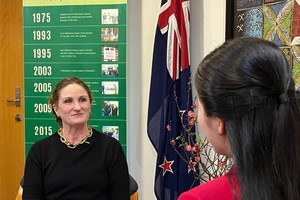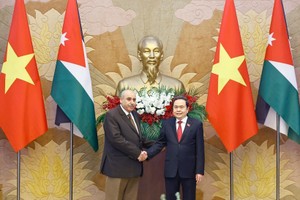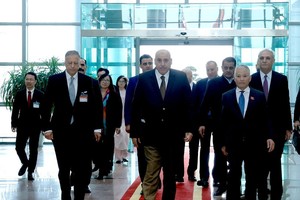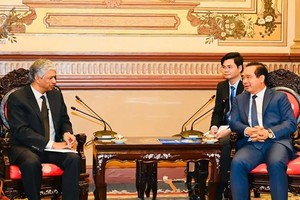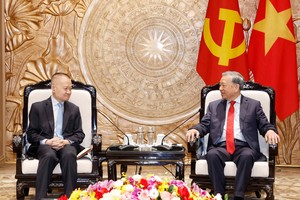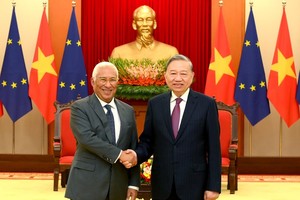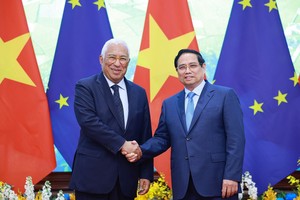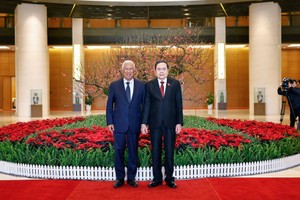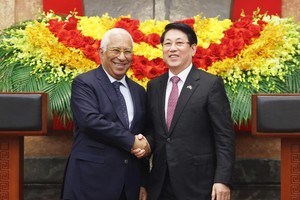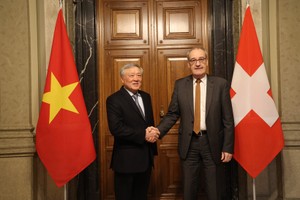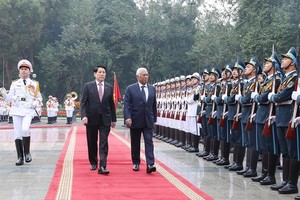Tony Blair's former chief spin doctor Alastair Campbell has fiercely denied "sexing up" a dossier which claimed Iraq could launch chemical or biological weapons within 45 minutes ahead of the 2003 war.
In a defiant appearance Tuesday at a public inquiry on the conflict, Campbell said that while the controversial document could have been "clearer", he still defended "every single word" of it -- and the invasion itself.
"I think Britain as a country should feel incredibly proud of the role it played in taking on one of the most brutal, barbarous regimes in history," said Campbell, one of the former prime minister's closest allies.
The first big name to appear before the Chilcot inquiry, he appeared days before Blair gives evidence later this month or early next.

Current prime minister Gordon Brown -- who Campbell said was one of the "key ministers" Blair consulted in the run-up to war -- will appear after this year's general election, expected in May.
Aside from his staunch defence of the infamous dossier, Campbell told the inquiry that while Britain pressed the United States to seek a diplomatic solution, Blair wrote notes in 2002 to then president George W. Bush saying he would support military action if this did not work.
"If that cannot be done diplomatically and it is to be done militarily, Britain will be there. That would be the tenor of the communication to the president," he said.
A large part of Campbell's evidence focused on a September 2002 dossier which the British government issued to explain its growing concerns over Iraq, six months before Britain joined the invasion.
The BBC subsequently reported that Campbell had "sexed up" the report, which claimed Iraq could launch a chemical or biological attack within 45 minutes, sparking an angry row with the prime minister's office in Downing Street.
On Tuesday, Campbell again insisted he had never tried to "beef up" anything written by the dossier's author, John Scarlett, then chairman of a high-level committee advising the government on intelligence.
"At no point did anybody from the prime minister down say to anybody within the intelligence services: 'You have got to tailor it to fit this judgment or that judgment,'" Campbell said.
"The whole way through, it could not have been made clearer to everybody that nothing would override the intelligence judgments and that John Scarlett was the person who, if you like, had the single pen."
Campbell, Downing Street's former director of communications and strategy, resigned in August 2003, the month after Ministry of Defence weapons expert Dr. David Kelly was found dead near his home with slashed wrists.
Kelly believed he may have been the source of the BBC's "sexing up" story and officials confirmed his name as such to some reporters.
At the time, Campbell insisted he wanted to resign to spend more time with his family well before Kelly's death and a previous official inquiry exonerated him over the affair. The Chilcot inquiry is not covering Kelly's death.
Its committee members have faced criticism over alleged soft questioning of witnesses but the ex-BBC journalist who made the original "sexing up" claim was among those to praise their hard line with Campbell Tuesday.
"Campbell, inevitably, ran a classic 'no surrender' defence," Andrew Gilligan wrote on his blog for the Daily Telegraph.
But he praised Chilcot's committee saying they "asked often exactly the right questions."
Elsewhere in his evidence, Campbell insisted Blair was determined to deal with Saddam Hussein's regime peacefully right up to a crucial vote on the Iraq war in the House of Commons on March 18, 2003.
US-led forces began their invasion of Iraq two days after that vote, despite the lack of explicit backing from the UN Security Council. Britain was the second-biggest troop contributor, its deployment peaking at 46,000.
Campbell's evidence came as an independent commission in the Netherlands found that the Iraq war lacked legitimacy under international law.
British newspapers devoted large amounts of space to Campbell's appearance Wednesday, with the Guardian saying it reminded voters that "it was the Iraq war that broke the bond of trust between his government and the nation."
The Telegraph said the "important lesson" of the inquiry was highlighted by the appearance -- "Labour's pathological obsession with spin and manipulation to mould public opinion is not a sound basis on which to invade another country."

